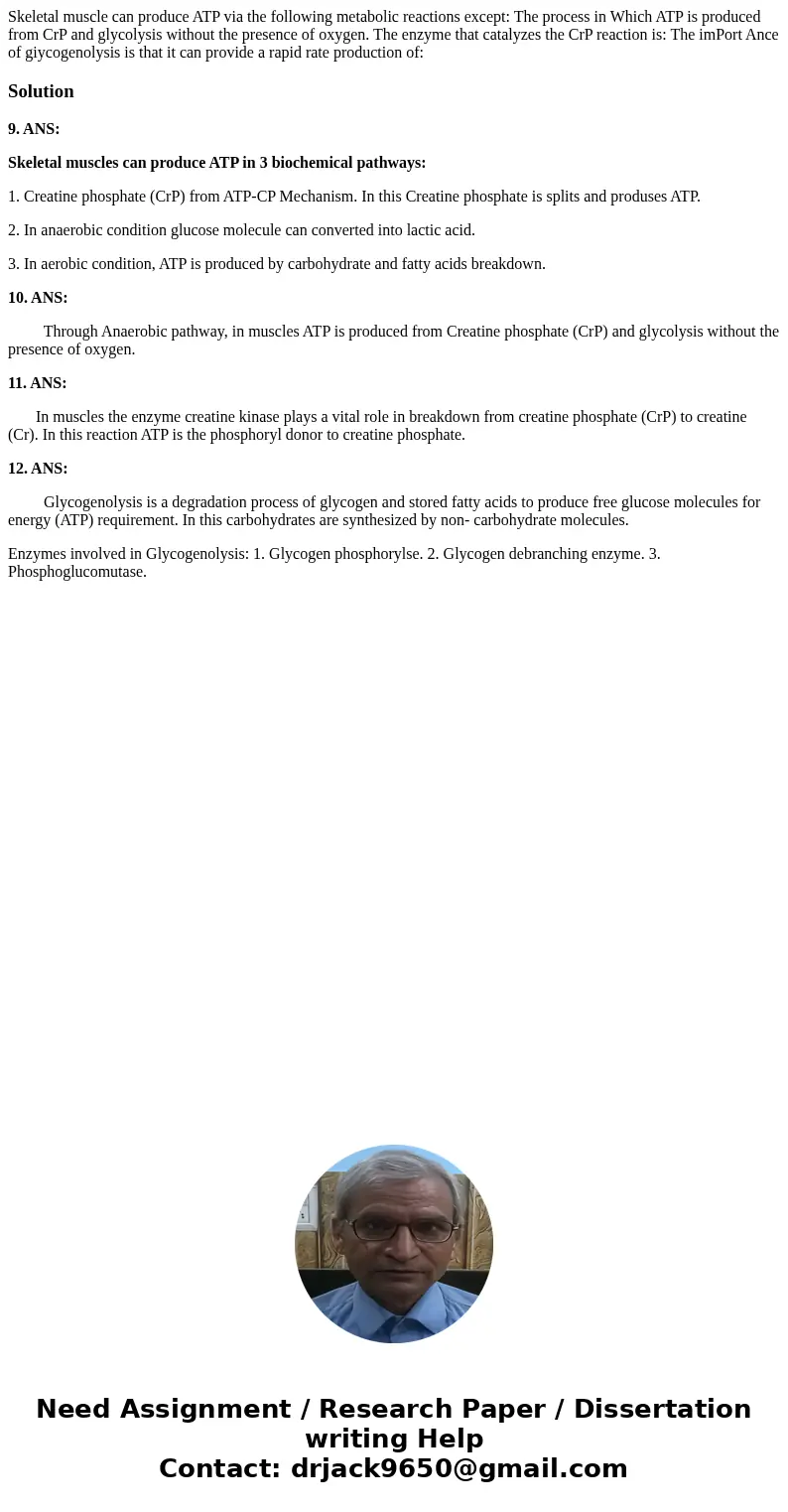Skeletal muscle can produce ATP via the following metabolic
Solution
9. ANS:
Skeletal muscles can produce ATP in 3 biochemical pathways:
1. Creatine phosphate (CrP) from ATP-CP Mechanism. In this Creatine phosphate is splits and produses ATP.
2. In anaerobic condition glucose molecule can converted into lactic acid.
3. In aerobic condition, ATP is produced by carbohydrate and fatty acids breakdown.
10. ANS:
Through Anaerobic pathway, in muscles ATP is produced from Creatine phosphate (CrP) and glycolysis without the presence of oxygen.
11. ANS:
In muscles the enzyme creatine kinase plays a vital role in breakdown from creatine phosphate (CrP) to creatine (Cr). In this reaction ATP is the phosphoryl donor to creatine phosphate.
12. ANS:
Glycogenolysis is a degradation process of glycogen and stored fatty acids to produce free glucose molecules for energy (ATP) requirement. In this carbohydrates are synthesized by non- carbohydrate molecules.
Enzymes involved in Glycogenolysis: 1. Glycogen phosphorylse. 2. Glycogen debranching enzyme. 3. Phosphoglucomutase.

 Homework Sourse
Homework Sourse